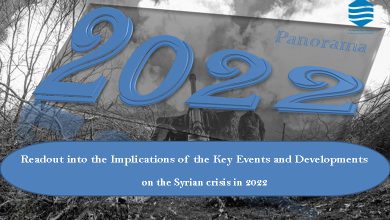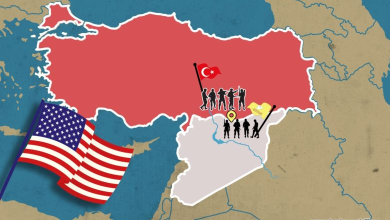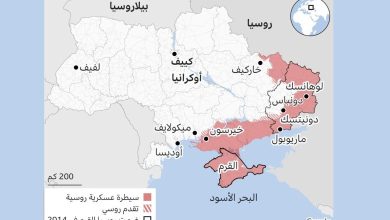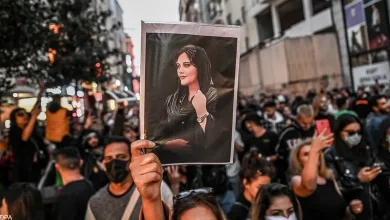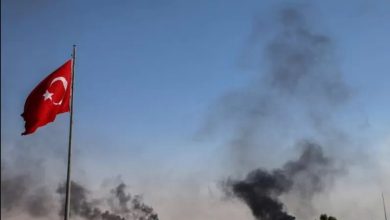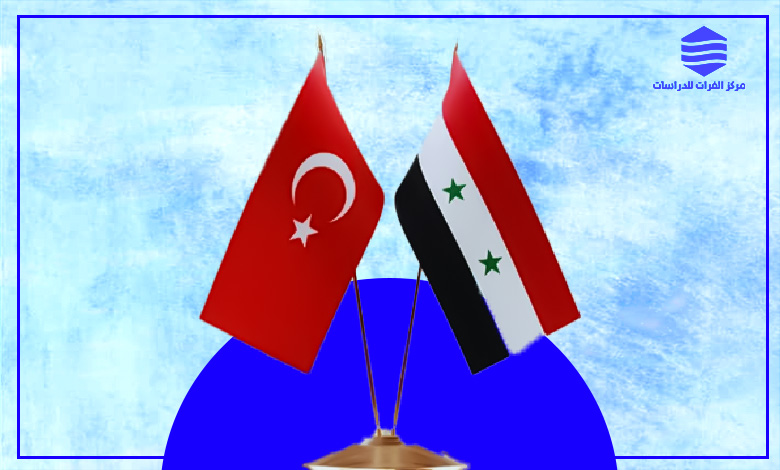
Ankara and Damascus: Approaching a New Round of Normalization Talks… Objectives, Impacts, and Challenges
In early June 2024, Iraqi Prime Minister Mohammed Shia’ Al-Sudani announced that his government was working on reviving the normalization process between Ankara and Damascus. Following this, the Turkish and Syrian presidents made several statements showing their willingness to engage in normalization efforts. Recently, the official Syrian newspaper “Al-Watan” reported that the Baghdad meeting would be the starting point in a prolonged negotiation process that could result in political and field understandings,” noting that the Turkish side had requested from Moscow and Baghdad “to sit at a bilateral dialogue table with the Syrian side, without a third party, and away from the media.”
This new round of talks is taking place under somewhat different conditions compared to previous ones, due to events like Erdogan’s re-election, Damascus rejoining the Arab League, and the return of ambassadors from several Arab countries, including Saudi Arabia, to Damascus. Additionally, the Gaza conflict’s repercussions will influence these talks. The flexible statements from both Damascus and Ankara indicate that both sides recognize the need for these discussions and might have to make concessions to reach an agreement. However, significant challenges and obstacles are expected due to the profound disagreements between the two parties.
What recent changes have led to the revival of the normalization process now? What strengths and weaknesses do Ankara and Damascus each hold currently? What are the key regional and international perspectives on the resumption of normalization talks? What are the chances for success in this new round and its main challenges? What are the possible impacts of successful normalization on the autonomous administration of North and East Syria and the Turkish-backed Syrian opposition?
Flexibility in Damascus and Ankara’s Stances
Talks about normalization between Ankara and Damascus have restarted through Baghdad after previous efforts by Russia and Iran failed. Both Turkish and Syrian officials have since expressed a willingness to engage in dialogue, with a softer tone and fewer preconditions than before. Some Syrian politicians note that “Damascus’s conditions for Turkey’s withdrawal from northern Syria have been reduced to a ‘verbal commitment’ from Turkey to withdraw before meetings start.” This view is based on Foreign Minister Faisal Mekdad’s statements at a June 4, 2024, press conference, where he said, “We want to see precise Turkish commitments reflecting Turkey’s commitment to withdraw from our occupied lands and stop supporting terrorist organizations.” This suggests that both sides are ready to negotiate without preconditions, discussing Turkish withdrawal after talks begin.
Syrian President Bashar al-Assad echoed this during his meeting with Russian envoy Alexander Lavrentiev on June 26, 2024, expressing “Syria’s openness to all initiatives related to the relationship with Turkey, based on Syria’s sovereignty over its entire territory and fighting all forms of terrorism.” Although Syrian conditions remain, the emphasis on sovereignty instead of demanding Turkish withdrawal indicates Damascus is signaling Baghdad and Russia to move forward with talks.
Similarly, Turkish President Recep Tayyip Erdogan’s statements were more flexible, indicating he “does not rule out a meeting with Syrian President Bashar al-Assad to restore bilateral relations.” This shows Turkey’s strong interest in resuming normalization talks with Damascus.
What are the motives for both parties to show flexibility this time?
For Damascus: The reasons behind Damascus’s current willingness to engage with normalization initiatives led by Baghdad, supported by Gulf countries, are primarily economic and political. Syria is facing severe economic challenges, and there are considerable pressures from Arab nations, Russia, and the United States for Assad to pursue a resolution to the Syrian crisis through dialogue based on UN Resolution 2254. Additionally, the United States’ suspension of the Anti-Normalization Law with Damascus, an extension of the Caesar Act that will expire at the end of 2024, signals a new opportunity for the regime to collaborate with Arab countries and demonstrate genuine efforts toward negotiation and resolving the crisis within the framework of the UN resolution. This gives the regime a chance to show progress towards a political solution before the year’s end, aiming to prevent the extension of Caesar Act sanctions or the enactment of the Anti-Normalization Law.
The Syrian regime has started to move, even if superficially, within the Arab initiative (step-by-step) and partially in line with the UN resolution. This has been reflected in several recent decisions and changes by the Syrian president, including significant reforms in the Syrian army, such as altering the conscription system, discharging thousands of soldiers, exempting those required for reserve service, and transitioning to a volunteer army. These measures seem to facilitate the return of Syrian refugees, especially young people, without fear of persecution. Additionally, the regime is trying to appease Arab countries by revising some security laws, allowing a new group, particularly young people, to run for the People’s Assembly elections, and periodically launching campaigns to curb Captagon smuggling. All these policy changes, alongside Damascus’s reserved stance on the Gaza war, are part of Assad’s efforts to rehabilitate his image and gain legitimacy from Arab, Western, and even American countries, with the hope of easing economic sanctions.
For Turkey: Given Turkey’s current situation, several reasons can be deduced for Erdogan’s willingness to pursue normalization and potentially meet with Assad. Key motives include:
Erdogan and his party are feeling internal pressures after a decline in popularity in the local elections of April 2024, primarily due to the Syrian refugee crisis and the deteriorating economic situation, which is significantly impacted by Turkey’s foreign policies, especially its involvement in Syria. Thus, Turkey is seeking economic benefits through rapprochement with the Syrian regime by opening crossings between Turkey and the Syrian territories it occupies and regime-controlled areas. This was demonstrated by the opening of the Abu al-Zandin crossing between al-Bab city and regime-controlled areas, reflecting Turkish Foreign Minister Hakan Fidan’s statement about using the period of calm to foster rapprochement between the Syrian regime and opposition. However, this move faced public opposition, which Erdogan blamed on the inflammatory rhetoric of the Turkish opposition, which he claimed incited protests by the Syrian community against Turkish discriminatory practices.
Erdogan also aims to leverage Assad’s interest in engaging with Gulf countries for economic support for reconstruction efforts to mitigate the war’s effects. The Turkish president hopes to alleviate Turkey’s severe economic and financial crisis by seeking, with Russian mediation, to open crossings and routes from Turkey through opposition and regime areas to the Jordanian border.
Another crucial motive for Turkey is to undermine the autonomous administration experiment. Turkey has used the preparations for local elections by the autonomous administration in North and East Syria as a pretext to approach Damascus, making it a shared objective to combat and prevent the development of the autonomous administration. Turkey fears that if the regime opens dialogue with the autonomous administration, it would implicitly recognize it as a part of the Syrian opposition and a key player in the Syrian political solution. Therefore, Turkey is attempting to obstruct such efforts, even if it means sacrificing opposition factions and integrating them with Syrian regime forces. This intention was clear from Turkish Foreign Minister Hakan Fidan’s statements, who said: “We believe that if Syria’s government and opposition integrate, it will be a significant player in the fight against PKK terrorism,” as reported by Al-Araby Al-Jadeed on June 25, 2024.
Regional and International Positions
Iranian Position: Iran appears to have encouraged Baghdad to take this role at a time when Arab countries are increasingly engaging with Damascus, particularly after Saudi Arabia reinstated its ambassador there. Tehran is concerned that Arab countries like Saudi Arabia, the UAE, or Egypt might lead the political process to resolve the Syrian crisis, including mediating between Damascus and Turkey, which could diminish Iranian influence in Syria if the mediator is outside of Iran’s control.
Iran’s worries are exacerbated by signs of communication between the Syrian regime and the US, as indicated by Assad’s statement in April 2024 about periodic meetings between Syria and the US, and subsequent leaks about Assad preparing to negotiate with the autonomous administration in North and East Syria. Additionally, trust between the regime and Iran has been shaken by increasing assassinations of Iranian leaders by Israeli strikes, with Syrian intelligence being blamed. These developments might drive Iran to take control of the political solution initiative — including normalization between Damascus and Ankara — through its Iraqi arm, to ensure the Syrian regime remains under its influence and to disrupt any plans by the regime to engage with the autonomous administration under American pressure or incentives. This concern is heightened after the US announced its willingness to lift sanctions if progress towards conflict resolution is made, as stated by US Ambassador to the UN, Linda Thomas-Greenfield.
Russian Position: Russia, distracted by its war in Ukraine, aims to normalize relations between Damascus and Turkey for two main reasons: to keep Turkey close and prevent it from fully aligning with the Western bloc, maintaining open relations due to shared issues like Libya, North Africa, Azerbaijan, and economic ties; and to ensure that the normalization process is under Russian auspices to protect its interests in Syria and the Middle East. Although Russia stated in March 2024 through Foreign Minister Sergei Lavrov that “practical steps for normalization are impossible now due to the situation in Gaza,” after Baghdad announced its mediation, Russia reaffirmed its support for the initiative through the special envoy of the Russian president, Alexander Lavrentiev, in Damascus. He stated that “the current circumstances seem more favorable than ever for successful mediation, and Russia is ready to push the negotiations forward,” as reported by Turk Press on June 28, 2024. This shows Russia’s desire to control this initiative and not leave it to Iran, which competes with Russia for influence in Syria.
American Position: Although there has been no official comment from the US on the latest normalization initiative, America’s relaxed stance towards Arab engagement with Damascus and its suspension of the Anti-Normalization Law suggest that it does not oppose the normalization process between Damascus and its NATO partner. The US likely hopes that normalization will help achieve a breakthrough in the Syrian crisis and advance towards a political solution based on UN Resolution 2254.
The Potential Implications of Normalization for the Autonomous Administration and the Opposition
Should the Iraqi initiative succeed in normalizing relations between Ankara and Damascus, it is unlikely to affect the military situation in North and East Syria as long as U.S. forces remain in the area. The Syrian regime, aiming to appease Arab nations, the West, and the U.S., is not prepared to open new fronts against the Syrian Democratic Forces (SDF) at this time and therefore will not collaborate militarily with Turkey against them. However, this normalization could have political implications for the Autonomous Administration, such as excluding them from future negotiations to resolve the Syrian crisis.
While Turkey prioritizes undermining the Autonomous Administration in North and East Syria and repatriating Syrian refugees, combating the Autonomous Administration is not a priority for the Syrian regime for several reasons:
- The regime’s current military and economic conditions do not permit opening new fronts against the SDF, especially given the American presence in the region.
- The regime’s attempts to rely on Iranian militias and tribal militias formed by Iran to fight the SDF have failed. The Gaza war has occupied Iran and its militias, and Israeli strikes have targeted many Iranian leaders in Syria, crippling and dispersing these militias, making them more focused on avoiding Israeli strikes than confronting the SDF.
- The regime’s plans to fundamentally restructure the army indicate that it is not considering military solutions against the SDF in the near future. Additionally, the regime benefits from the presence of the Autonomous Administration as a tool to pressure Turkey into making concessions to Damascus. Thus, confronting the Autonomous Administration is not in Damascus’ interest before ending the Turkish presence in Syria.
Normalization could also directly impact the Syrian opposition both militarily and politically. Turkey has shown a willingness to abandon the opposition and push its factions to merge with regime forces to confront the Autonomous Administration. This has raised concerns among the opposition, leading to widespread protests in northern Syria and attacks on Turkish offices, including burning Turkish flags. The opposition fears that Turkey might sacrifice them in the new normalization talks. Currently, the opposition lacks strong leverage to prevent Turkey from normalizing with Damascus, having lost legitimacy among Arab countries that reinstated Damascus to the Arab League and due to the West’s withdrawal of support for the dominance of extremist groups and the Muslim Brotherhood within the opposition, both politically and militarily.
Chances of Success for the New Round of Normalization
The unusual flexibility shown by Ankara and Damascus in engaging with Baghdad’s initiative suggests that these discussions might help ease tensions between the two sides, allowing them to agree on certain political and economic issues without achieving full normalization. This relative rapprochement could mark a new chapter in the Syrian crisis. However, the path to complete normalization remains fraught with obstacles due to significant differences in each country’s demands and priorities, deep-seated disagreements, and a crisis of trust between them.
Despite the apparent willingness of Ankara and Damascus to come closer, if Turkey insists on conditions for withdrawal that are difficult for Damascus to meet—such as combating the Autonomous Administration, drafting a new constitution, and repatriating refugees—or if the Syrian regime insists on Turkish withdrawal before implementing these conditions amidst their mutual distrust, the normalization process will remain incomplete and stuck in a deadlock.
Moreover, the presence of numerous regional and international actors in the Syrian arena will pose a significant challenge to Iraqi mediation. Balancing and accommodating the interests of the United States, Russia, Iran, and Israel in the Syrian issue is difficult to achieve without agreeing on a comprehensive solution to the Syrian crisis. Therefore, this mediation is unlikely to yield substantial results, as the current situation in Syria and the world is a conflict of axes rather than mere disagreements between neighboring powers or countries. Consequently, neither the Syrian nor the Turkish side can make a decision without the full agreement of the entire axis to which they belong.
The Outlook:
Recent indications of Turkey’s willingness to re-engage with Damascus suggest a sincere desire to mend ties, primarily driven by the need to address its economic crisis, manage the refugee situation, and mitigate electoral setbacks. This move also aims to delay significant dialogue between Damascus and the Autonomous Administration until after the U.S. elections, anticipating a clearer stance from the new U.S. administration.
For Damascus, normalization with Turkey is urgently needed to boost its economy, secure Turkey’s formal recognition of Assad’s legitimacy, and depict opposition groups and factions as terrorists and rebels. Moreover, Damascus seeks to exert pressure on the Autonomous Administration to concede more to Damascus.
Russia and Iran, key supporters pushing for progress in Turkish-Syrian normalization, face challenges due to their competition for influence and economic interests in Syria, potentially complicating the prospects for agreement between Ankara and Damascus.
The timing of this initiative, amid U.S. presidential elections consuming over six months, suggests Russia, Turkey, and Iran aim to capitalize on this period to normalize relations, preempting adverse reactions from the United States.
Despite America and the West’s ambiguous stance on Baghdad’s normalization initiative, any successful normalization process must consider their interests. America’s potential use of the Anti-Normalization Law could influence outcomes if talks diverge against American interests. France’s veiled threats, such as issuing an international arrest warrant against President Bashar al-Assad for alleged involvement in chemical attacks, underscore the need for parties involved in talks to consider Western interests and adhere to international frameworks like UN Resolution 2254.
Data suggests that the Syrian opposition aligned with Turkey stands to suffer the most from normalization, particularly as “the Turkish side requested Russia and Iraq to sit at a bilateral table with the regime without the presence of any third party, away from the media, to discuss the details of restoring relations.” This means that Turkey does not want to leak what will be agreed upon regarding the opposition and its factions, and concerning the Autonomous Administration areas.
In conclusion, the Syrian file, surrounded by complexity, with the presence of America, Russia, Iran, and Turkey on its soil, cannot achieve any breakthrough in its crisis towards a solution separate from the other parties. Therefore, any mediation between Damascus and Ankara must be based on the principle of a comprehensive solution to the Syrian crisis and the involvement of all parties, including the Autonomous Administration.
